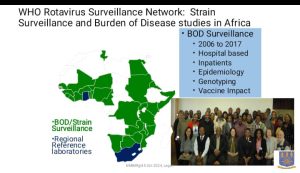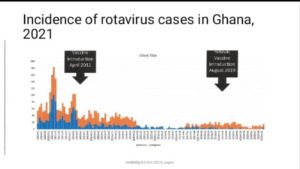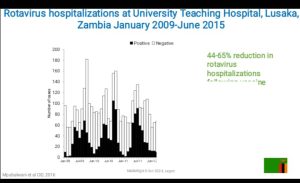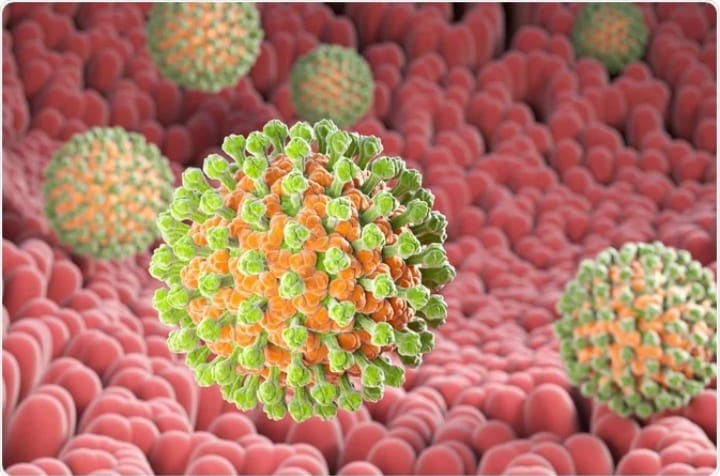On Thursday, October 3, 2024, the first lecture in the Noguchi Memorial Institute for Medical Research 45th Anniversary Lecture Series took place with a focus on the formation and role of the African Rotavirus Network (ARN) in combating rotavirus infections across Africa.
Delivered by Head of the West African WHO Regional Rotavirus Reference Laboratory at Noguchi, Professor George Enyimah Armah, the lecture explored how ARN has become a driving force in tackling Rotavirus, a major cause of severe diarrhea in children.
The African Rotavirus Network was established, uniting scientists from countries including Ghana, Kenya, Tunisia, and South Africa.

They collaborated with global institutions such as Oxford and Cambridge Universities, setting up sentinel sites to collect Rotavirus data and training local researchers to use the findings in their work.
Their efforts led to research on Rotavirus vaccines, shaping Africa’s understanding of the disease’s epidemiology.
“And the first thing we did was to set up a lot of training programs so that people would get some training on how to diagnose, how to understand.”
During his lecture, Professor Armah detailed how Ghana played a significant role in multi-trial sites for rotavirus vaccine efficacy studies.
These trials showed cross-protection among various rotavirus strains, one of the ways in advancing the vaccine’s effectiveness. Efficacy rates ranged from 50% to 64% in Ghana, with other countries like Bangladesh and Vietnam showing even higher results, reaching 85%.
The introduction of the rotavirus vaccine in Ghana in 2012 marked a turning point in the country’s fight against the disease.
“We saw a 60% reduction in rotavirus cases in hospitals after vaccine introduction.”

The data showed a similar trend in countries like South Africa, Malawi, and Zambia, reinforcing the vaccine’s success across the continent.

He further emphasized that the ARN’s work has also improved healthcare outcomes, as mothers no longer face the overcrowded hospitals previously seen during the peak diarrhea seasons.
“We worked from understanding the situation to supporting whatever we did. We did not work alone; we needed the support of others. Now, we are in a situation where we’ve done so well that we almost have no job left.”
”So in summary, we have demonstrated substantial decline in the Rotavirus disease. We have also provided data showing the safety of the vaccine. And then working very hard towards the sustainability of the vaccine.”
Story by: Joycelyn Glory | univers.ug.edu.gh

